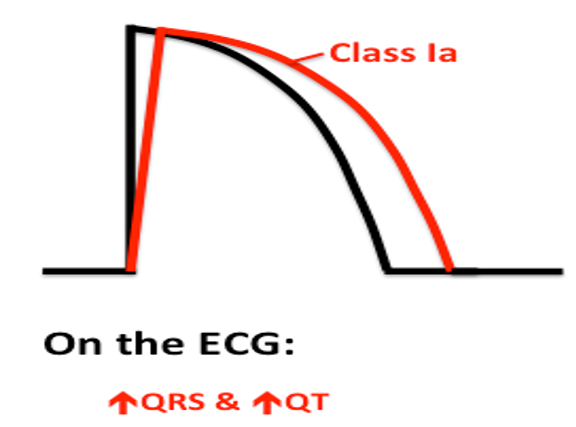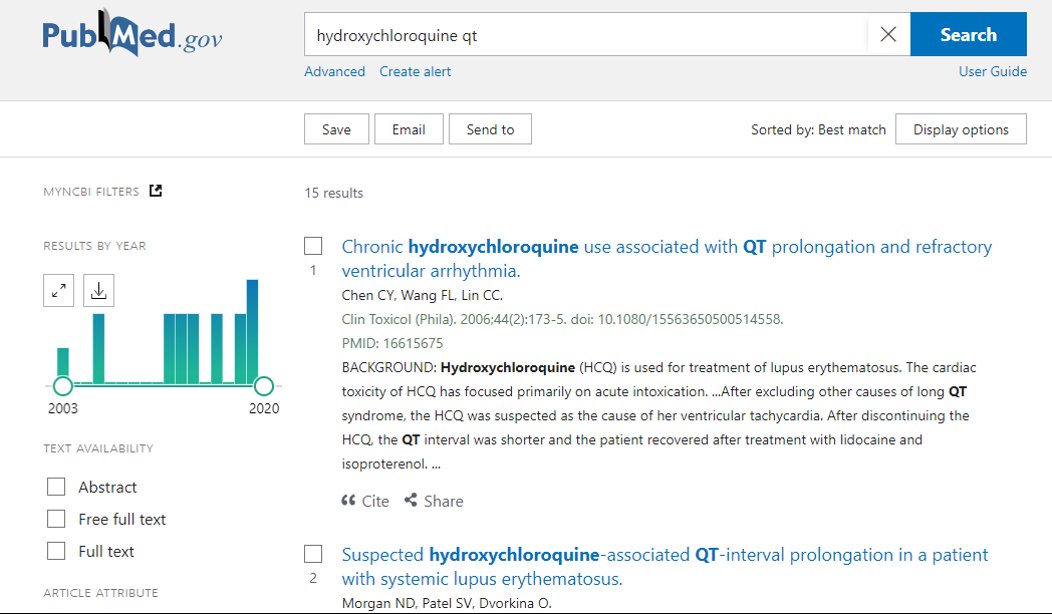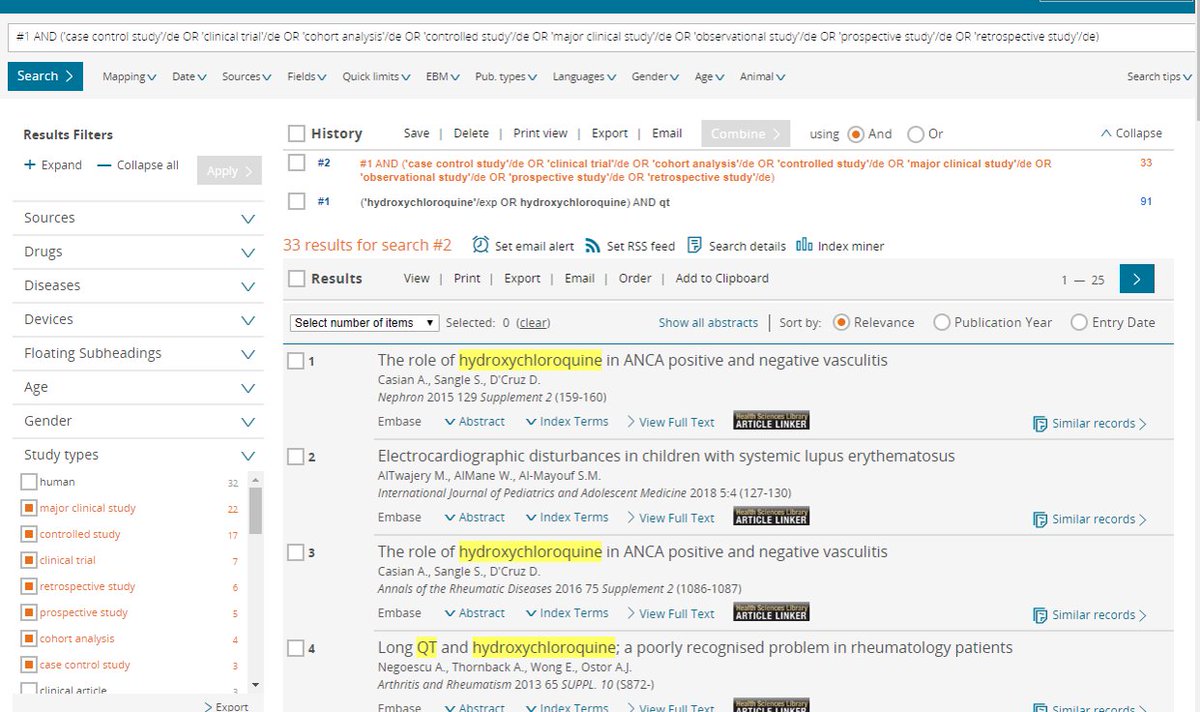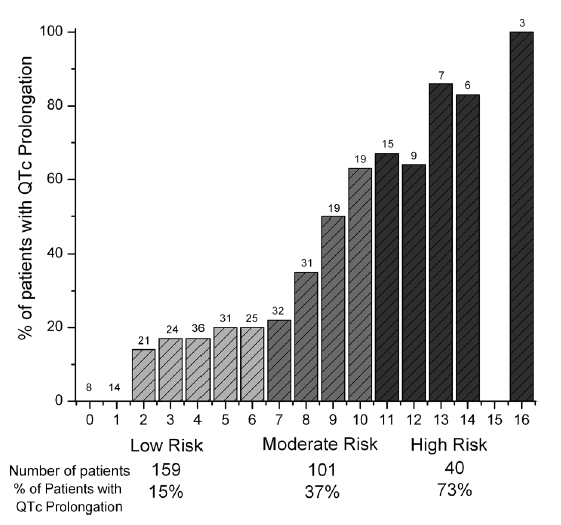Summary of the HCQ and QTc ed I& #39;ve been upto #COVIDー19
HCQ is a derivative of quinine (Class 1a antiarrhythmic) and inhibits Na channels. This causes a slowing of phase 0 and ventricular depolarization.
Great article by @Annie_Arens et al on HCQ OD https://tinyurl.com/ssfsd4a ">https://tinyurl.com/ssfsd4a&q...
HCQ is a derivative of quinine (Class 1a antiarrhythmic) and inhibits Na channels. This causes a slowing of phase 0 and ventricular depolarization.
Great article by @Annie_Arens et al on HCQ OD https://tinyurl.com/ssfsd4a ">https://tinyurl.com/ssfsd4a&q...
Ideally we would like to know how much the QTc changes after 200, 400, 600, and 800 mg of HCQ. Turns out, data on this topic is quite sparse. A quick search of PubMed shows a grand total of 15 results. All relevant studies are case reports which by definition are rare/weird.
Ended up using EMBASE and had more success. EMBASE included conference abstracts as well as studies not indexed in PubMed.
Best data available: 2013 American College of Rheumatology abstract https://tinyurl.com/rgt2gme
n=19,">https://tinyurl.com/rgt2gme&q... 16 female, 3 male
CV history: HTN (n=7), obesity (n=5), ischemic HD (n=4), DVT (n=3), stroke (n=3)
Dose: 200 mg (n=4), 400 mg (n=15) per day
Mean QTc change = 25 msec!!!
n=19,">https://tinyurl.com/rgt2gme&q... 16 female, 3 male
CV history: HTN (n=7), obesity (n=5), ischemic HD (n=4), DVT (n=3), stroke (n=3)
Dose: 200 mg (n=4), 400 mg (n=15) per day
Mean QTc change = 25 msec!!!
A 25 msec QTc increase is nothing to sneeze at. For context the two biggest antimicrobial QTc offenders are:
Moxi QTc prolongation: 15-20 msec in health pts https://pubmed.ncbi.nlm.nih.gov/12709719/
Voriconazole:">https://pubmed.ncbi.nlm.nih.gov/12709719/... 25-20 msec in heme/onc pts https://pubmed.ncbi.nlm.nih.gov/28624887/ ">https://pubmed.ncbi.nlm.nih.gov/28624887/...
Moxi QTc prolongation: 15-20 msec in health pts https://pubmed.ncbi.nlm.nih.gov/12709719/
Voriconazole:">https://pubmed.ncbi.nlm.nih.gov/12709719/... 25-20 msec in heme/onc pts https://pubmed.ncbi.nlm.nih.gov/28624887/ ">https://pubmed.ncbi.nlm.nih.gov/28624887/...
Now what do we do with this information
Experts recommend ECG monitoring or NOT using meds that cause QT prolongation if
- baseline QTc is >500 msec
- Tisdale risk score >10
Expert reviews
ACC https://tinyurl.com/ua6v8gp
Preprint">https://tinyurl.com/ua6v8gp&q... https://tinyurl.com/sqj6cel ">https://tinyurl.com/sqj6cel&q... by @JohnGiudicessi
Experts recommend ECG monitoring or NOT using meds that cause QT prolongation if
- baseline QTc is >500 msec
- Tisdale risk score >10
Expert reviews
ACC https://tinyurl.com/ua6v8gp
Preprint">https://tinyurl.com/ua6v8gp&q... https://tinyurl.com/sqj6cel ">https://tinyurl.com/sqj6cel&q... by @JohnGiudicessi
Background on Tisdale score
This study created and validated a drug-induced QT prolongation risk score. https://pubmed.ncbi.nlm.nih.gov/23716032/
The">https://pubmed.ncbi.nlm.nih.gov/23716032/... score is easily calculated and predicts who is at risk of drug-induced QT prolongation but does not predict torsades or sudden cardiac death.
This study created and validated a drug-induced QT prolongation risk score. https://pubmed.ncbi.nlm.nih.gov/23716032/
The">https://pubmed.ncbi.nlm.nih.gov/23716032/... score is easily calculated and predicts who is at risk of drug-induced QT prolongation but does not predict torsades or sudden cardiac death.
This thread is not an endorsement for the use of HCQ. The goal is to encourage everyone to conduct a thurough risk-benefit analysis before initiating HCQ. Especially for patients with COVID-associated myocarditis.
Distantly yours https://abs.twimg.com/emoji/v2/... draggable="false" alt="😷" title="Face with medical mask" aria-label="Emoji: Face with medical mask">
https://abs.twimg.com/emoji/v2/... draggable="false" alt="😷" title="Face with medical mask" aria-label="Emoji: Face with medical mask">
Distantly yours

 Read on Twitter
Read on Twitter






